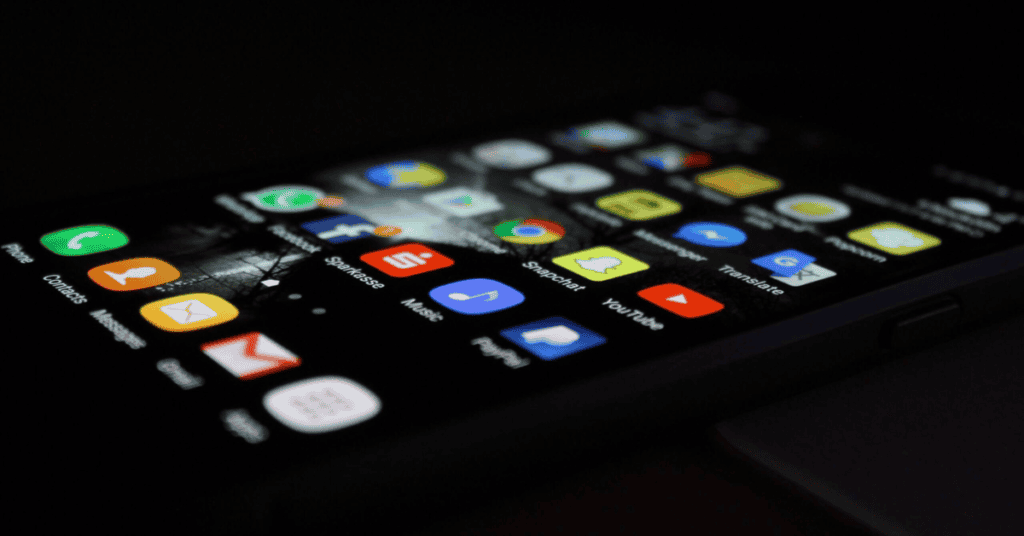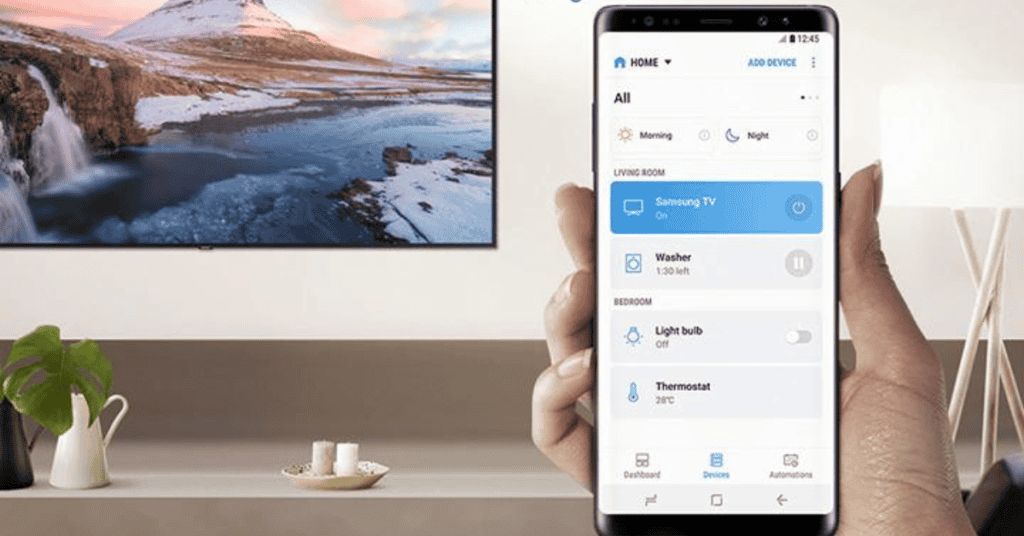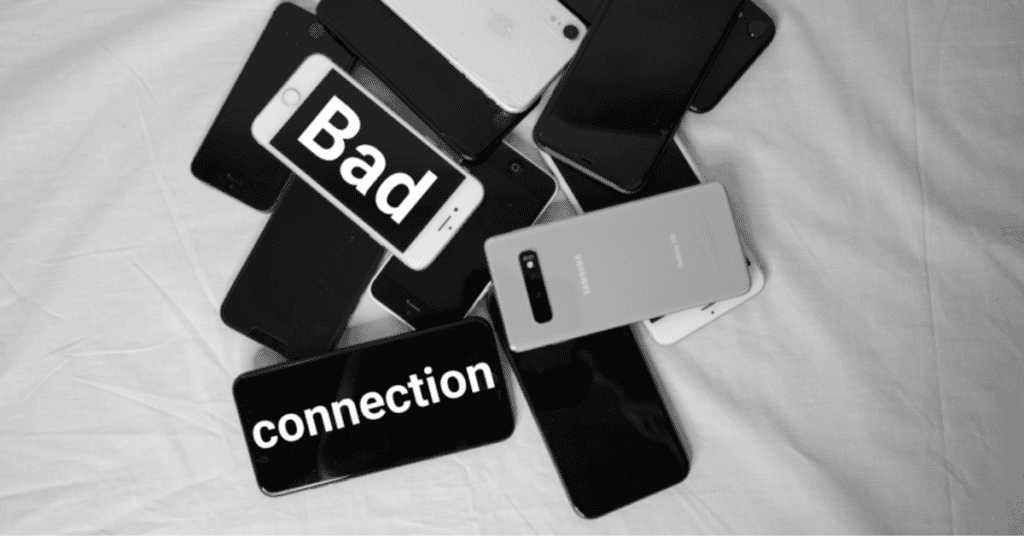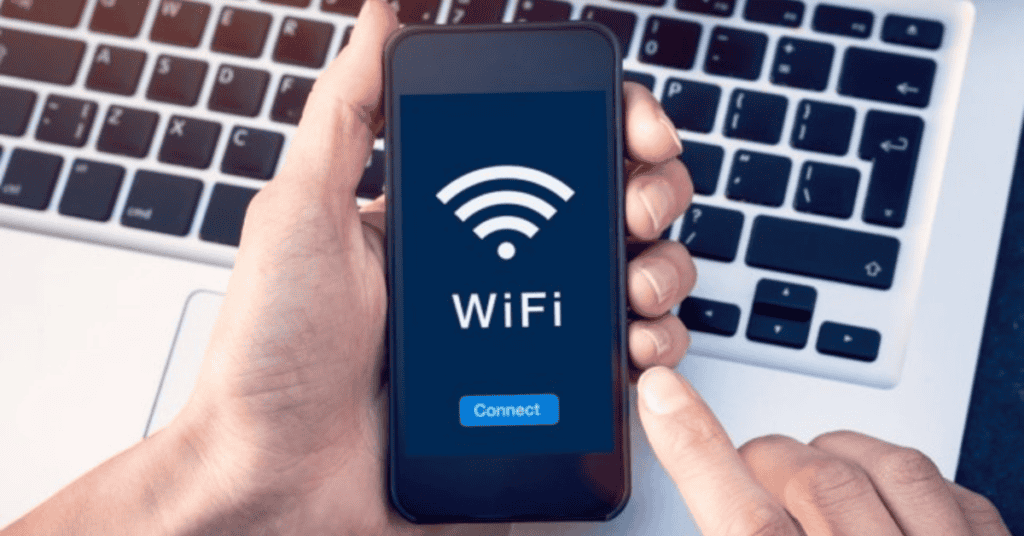Is your screen and audio casting from your Android smartphone to Chromecast freezing, dropping or not showing any images?
If so, rest assured that it’s not just you experiencing this issue!
Screen mirroring technology is a method of projecting your phone’s content onto an external monitor. The larger screen will mirror every action you perform on your gadget, allowing you to see the information you want on the larger screens.
The Screen Mirroring feature is very useful if you want to enjoy services on TV that don’t officially support the Google dongle (examples include Amazon Prime Video and Apple Music).
However, this feature does not always work efficiently and can end up giving some users quite the headache.
Sometimes, screen mirroring isn’t exactly straightforward. And unfortunately, there are several reasons as to why the system doesn’t always work!
Usually, when screen mirroring doesn’t work properly (such as when it doesn’t produce images), it can all be linked back to one overarching issue: Connectivity.
Whether that’s the connection between devices or to the wireless network, an inadequate or failed connection will result in compromised screen-sharing capabilities.
Thankfully, however, there are some effective quick-fix techniques you can use to tackle these problems.
An important thing to note is that the solutions detailed below won’t solve every problem out there- largely due to the large variety of different functionalities in devices.
However, as a starting point, you should definitely give them a shot! By following the procedures below, you should hopefully be able to identify what’s wrong with your mirroring process and fix it accordingly.
Why You Definitely Need to Fix Your Screen Mirroring Problem

When you’ve tried out multiple solutions and they’ve all failed, chances are that you might be on the verge of giving up.
After all, why bother messing around with a troublesome larger screen when your smartphone itself has a screen which is still functional?
However, this is an argument for getting the function back up and working, because it truly has the ability to improve your user experience and enjoyment.
Screen mirroring is popular because it is a terrific way to watch material on your smartphone with several people.
For example, the whole family can watch a movie you have on your phone by simply mirroring it onto the TV.
If you want a larger screen to quickly go through a set of slides at work, screen mirroring works great for that as well! The opportunities are truly endless.
With all that being said, what are your options when it comes to fixing your screen mirroring issues?
To answer that, we must first start by addressing the most typical problems. Then, we’ll dive right into the best methods by which you can fix the screen mirroring function by yourself at home!
Problems With Screen Mirroring (And Their Solutions)
The most frequently encountered: screen mirroring issues- and their solutions- are listed below:
1. Issues With Phone Compatibility
While it’s now pretty common, not every smartphone supports screen mirroring.
For these devices, you’d have to use some kind of third-party software or other options to bring the function to the phone.
Since certain phones don’t have native screen mirroring capabilities, you’ll have to check that your device is capable of the function (you can do so with a simple Google search).
If you find that your phone does have the function available, it may be possible to resolve a mirroring problem by simply updating your phone’s software if it’s not currently on the most recent version.
If this doesn’t work, there are numerous other options for successfully displaying your smartphone’s information on a larger screen.
We’ll go over them in detail in the next section!
2. Issues With TV Compatibility

The TV you plan to use for mirroring is just as important as the smartphone!
In essence, your TV also has to be compatible to work with the technology that’s required. Some older televisions lack this capability entirely!
Fortunately, a few methods exist to make outdated TVs work with screen mirroring.
For example, one of them involves linking your smartphone using wired technology. You’re in luck if the TV has an HDMI connector, as other methods like Chromecasting will allow it to work straight away!
3. No TV Detected
There are a few things to consider if your mobile, iPad and television are all suitable for screen mirroring, but your device can’t seem to detect the TV.
By default, some TV manufacturers do not enable the screen mirroring feature. However, most newly produced TVs include a special button for screen mirroring right on the remote.
In these cases, it may also be necessary to fix the connection. You can do this yourself by rebooting your television, router, and smartphone.
Since Wi-Fi is essential to screen mirroring, rebooting the Wi-Fi can occasionally fix connectivity difficulties as well.
4. Bad Connection

When syncing up their devices with their TV, users often report that their cellphones frustratingly freeze at the “Connecting” stage.
Below are a few possible solutions to this problem that you can try:
Solutions:
- Refresh the connection by restarting the smartphone’s Wi-Fi.
- Switch off your TV. Just to be extra sure, turn it off at the socket and remove the TV’s power cord. That way, it turns off completely. Then, switch it back on after a few minutes.
- Reduce the physical distance between the device and television by bringing them closer.
5. Third-Party Apps to the Rescue
There’s a possibility that the fixes listed above won’t work.
Some TVs with native screen mirroring simply won’t work with other manufacturers, limiting their usage to their own brands.
For example, if you have an LG smartphone, you should be able to use an LG television with zero issues.
This is also true for other brands. Devices of the same brand generally will work better together.
Thankfully, things have been made much easier with the availability of dongles and apps for mirroring.
Chromecast is a great option because it works with practically any smartphone and simply needs your TV connected to an HDMI cable. You don’t even need a Smart TV!
Another potentially effective option is to try a third-party mirroring app instead of utilizing the apps that came with your smartphone.
Tips to Improve Android Screen and Audio Mirroring
To avoid crashes and loss of connection during screen sharing to Chromecast, it’s important to keep the devices as close to each other as possible.
According to the manufacturer, the smartphone should be at most 4 meters away from the dongle.
Likewise, the Chromecast should also be within 4 meters of the router it is connected to! This ensures that devices can send and receive their signals efficiently.
Additionally, you should ensure that the smartphone is in the same room as the TV where you’ve installed the media center. This prevents the signal from having to go through walls before reaching the device.
Finally, it’s worth mentioning that if your intention is to only transmit the audio of a song, leaving the cell phone screen off can help to improve quality!
Pay Attention to the Internet Connection

A good internet connection is a very important factor for proper Chromecast functioning.
It’s no different when it comes to any screen mirroring feature. The first thing you have to do is ensure that you’ve connected the dongle to the same Wi-Fi network as your cell phone.
To check, go to the Google Home app on your smartphone and follow this path: Devices > Device Name > Settings.
In this menu, you’ll be able to check which network you’ve connected your Chromecast too.
You can also carry out a few simple steps if either of the devices is experiencing difficulties in acquiring a solid internet signal.
Try steps such as resetting the modem and Chromecast, or reconnecting the smartphone to the Wi-Fi network. Finally, changing the Wi-Fi bandwidth and considering potential router malfunctions are also possible solutions.
Is It Possible To Use Bluetooth To Share Your Screen?
Not exactly. Bluetooth can only deliver limited quantities of data at a time.
While it is relatively stable, its capacity limit makes it fairly unsuitable for successful screen mirroring.
In Conclusion
There are several reasons as to why trying to fix a screen mirroring issue can be difficult.
Unfortunately, the remedies are somewhat limited for the everyday consumer.
If your screen mirroring is producing sound but no images, it can most likely be traced back to connectivity issues.
Whether that’s a compatibility problem between devices or a connection issue with the app or internet, there are usually some broad solutions you can implement to see if they’ll help.
These can include restarting devices or routers, resyncing the smartphone with the TV, or making sure that they’re in sufficiently close proximity to see if that helps to improve the function.
Hopefully, this article will help you get back to watching your favorite videos and movies on a big screen soon!
